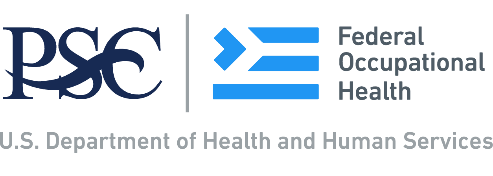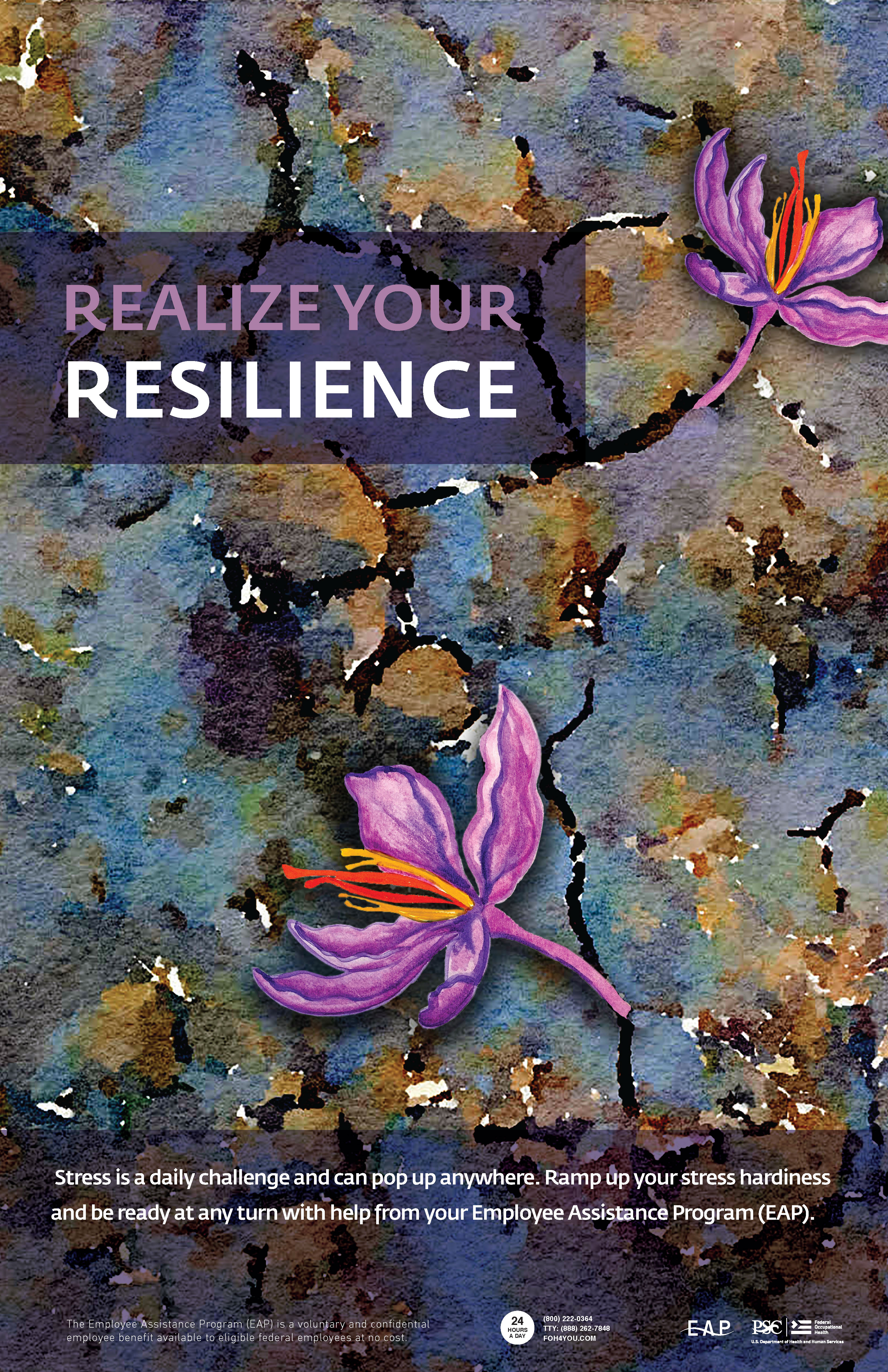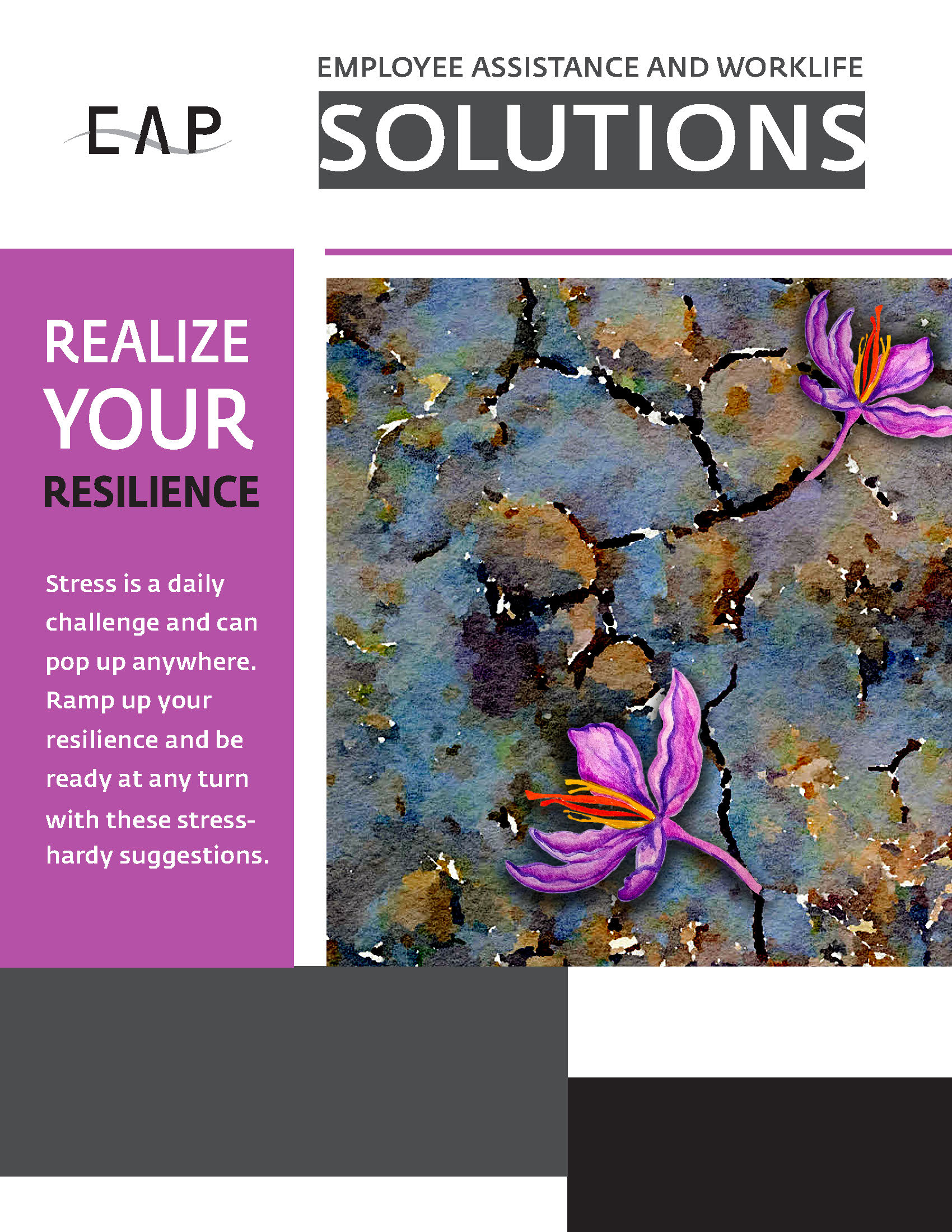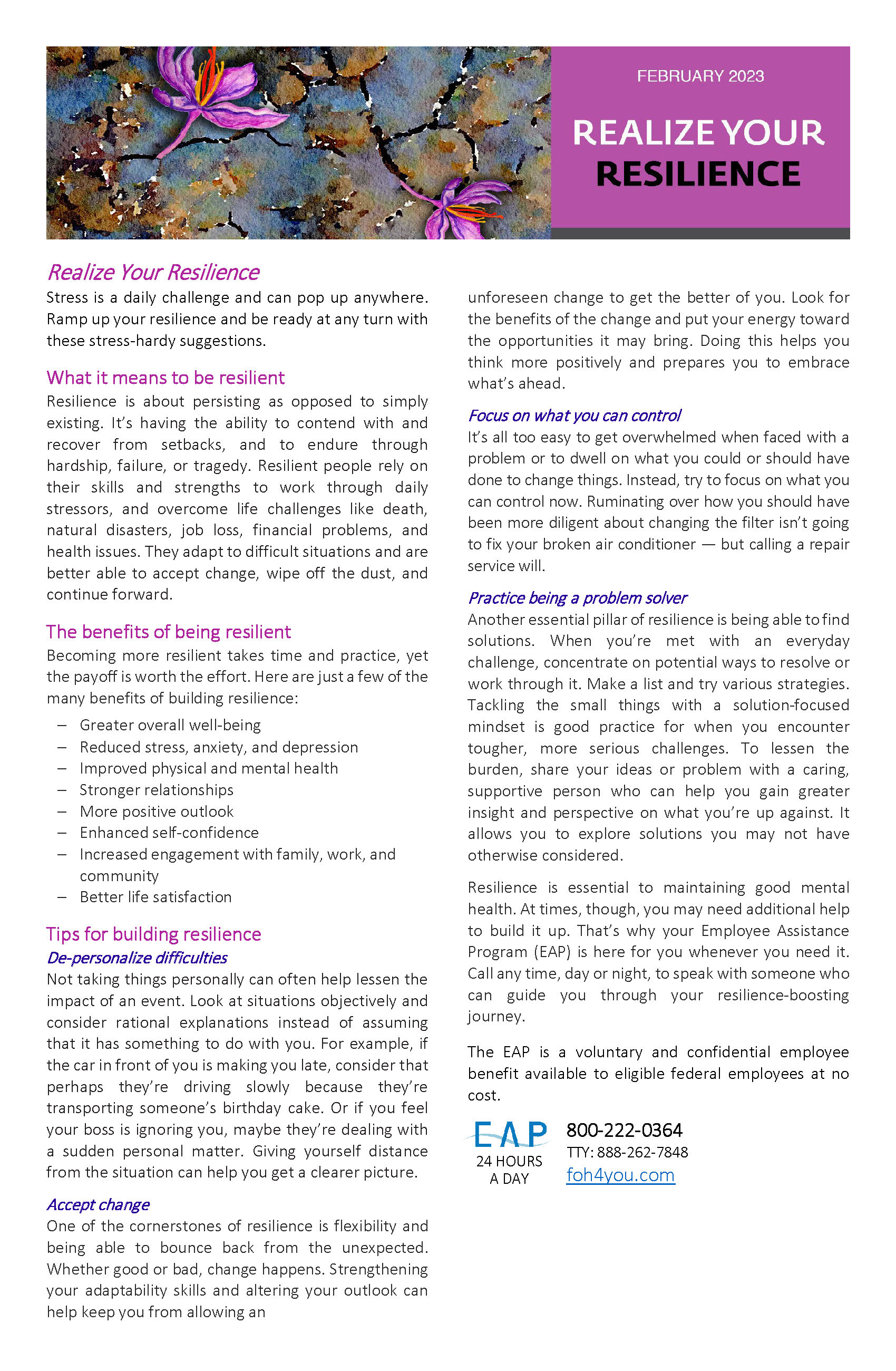
Stress is a daily challenge and can pop up anywhere. Ramp up your resilience and be ready at any turn with these stress-hardy suggestions.
What it means to be resilient
Resilience is about persisting as opposed to simply existing. It’s having the ability to contend with and recover from setbacks, and to endure through hardship, failure, or tragedy. Resilient people rely on their skills and strengths to work through daily stressors, and overcome life challenges like death, natural disasters, job loss, financial problems, and health issues. They adapt to difficult situations and are better able to accept change, wipe off the dust, and continue forward.
The benefits of being resilient
Becoming more resilient takes time and practice, yet the payoff is worth the effort. Here are just a few of the many benefits of building resilience:
- Greater overall well-being
- Reduced stress, anxiety, and depression
- Improved physical and mental health
- Stronger relationships
- More positive outlook
- Enhanced self-confidence
- Increased engagement with family, work, and community
- Better life satisfaction
Tips for building resilience
De-personalize difficulties
Not taking things personally can often help lessen the impact of an event. Look at situations objectively and consider rational explanations instead of assuming that it has something to do with you. For example, if the car in front of you is making you late, consider that perhaps they’re driving slowly because they’re transporting someone’s birthday cake. Or if you feel your boss is ignoring you, maybe they’re dealing with a sudden personal matter. Giving yourself distance from the situation can help you get a clearer picture.
Accept change
One of the cornerstones of resilience is flexibility and being able to bounce back from the unexpected. Whether good or bad, change happens. Strengthening your adaptability skills and altering your outlook can help keep you from allowing an unforeseen change to get the better of you. Look for the benefits of the change and put your energy toward the opportunities it may bring. Doing this helps you think more positively and prepares you to embrace what’s ahead.
Focus on what you can control
It’s all too easy to get overwhelmed when faced with a problem or to dwell on what you could or should have done to change things. Instead, try to focus on what you can control now. Ruminating over how you should have been more diligent about changing the filter isn’t going to fix your broken air conditioner — but calling a repair service will.
Practice being a problem solver
Another essential pillar of resilience is being able to find solutions. When you’re met with an everyday challenge, concentrate on potential ways to resolve or work through it. Make a list and try various strategies. Tackling the small things with a solution-focused mindset is good practice for when you encounter tougher, more serious challenges. To lessen the burden, share your ideas or problem with a caring, supportive person who can help you gain greater insight and perspective on what you’re up against. It allows you to explore solutions you may not have otherwise considered.
Download the Campaign
|
Poster |
PDF Newsletter |
PT Newsletter |
|
Resilience is essential to maintaining good mental health. At times, though, you may need additional help to build it up. That’s why your Employee Assistance Program (EAP) is here for you whenever you need it. Call any time, day or night, to speak with someone who can guide you through your resilience-boosting journey. 24 HOURS A DAY
The EAP is a voluntary and confidential employee benefit available to eligible federal employees at no cost. |




